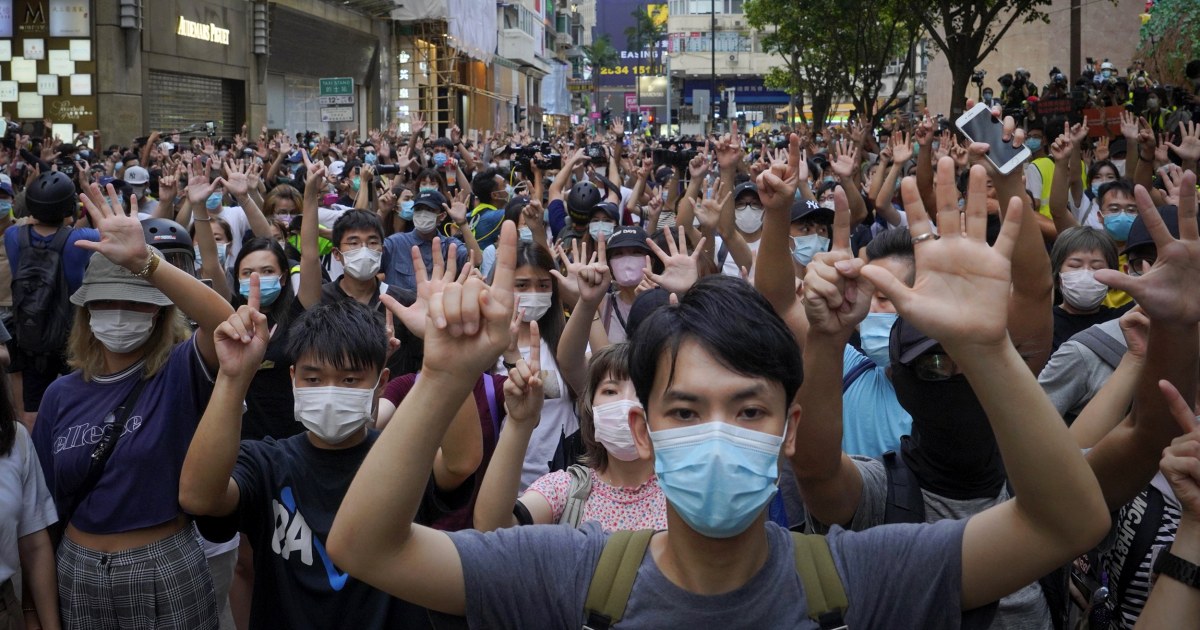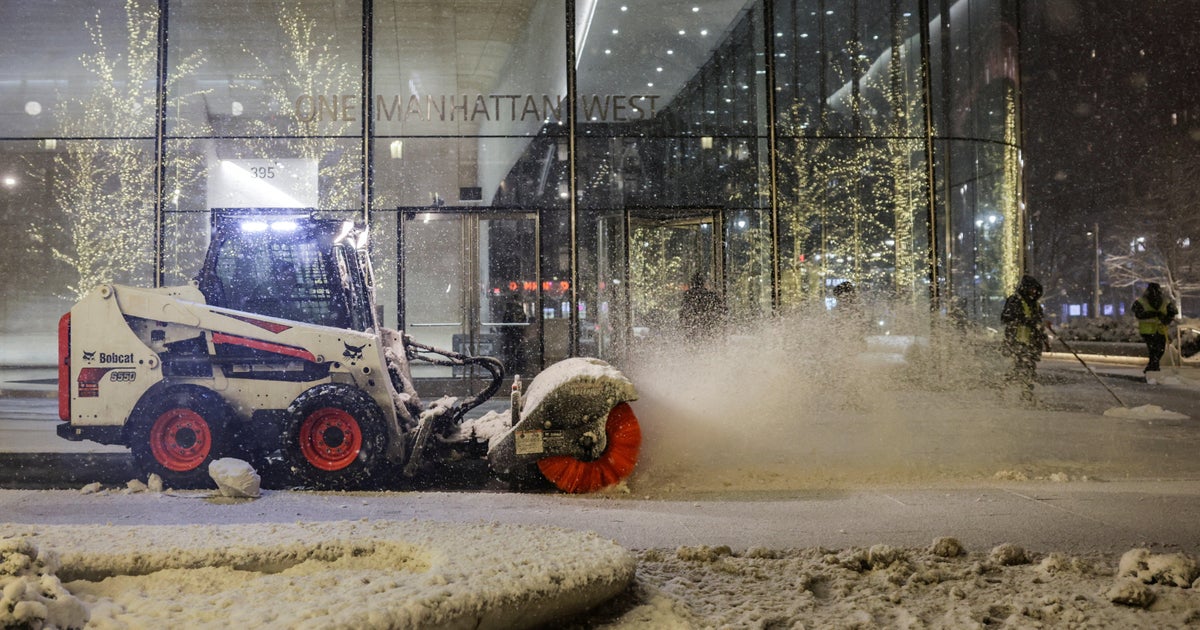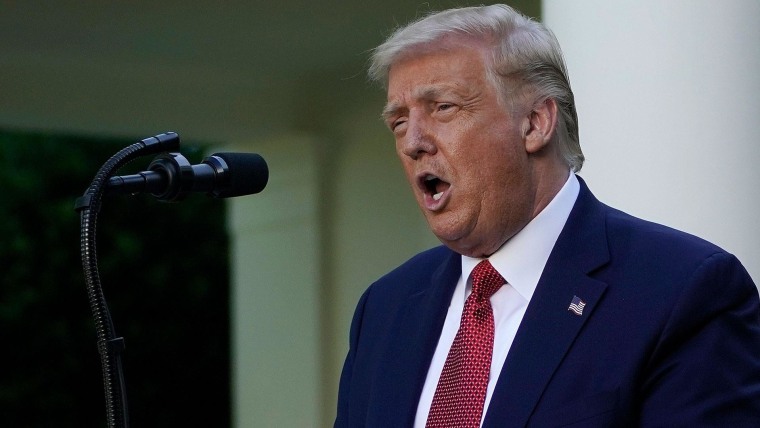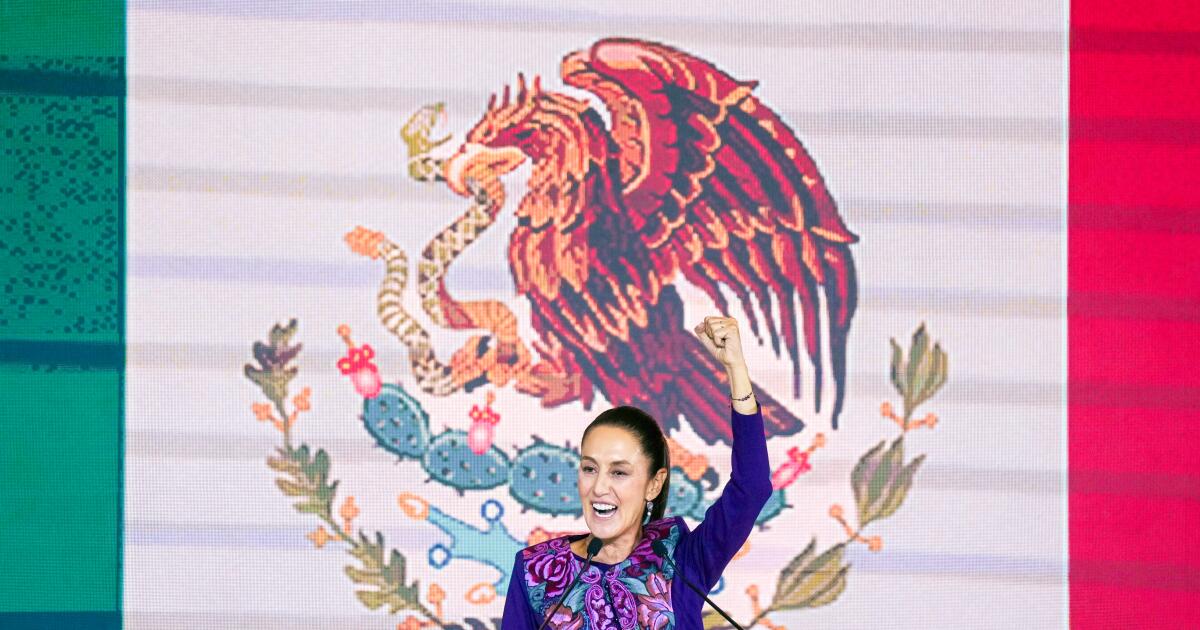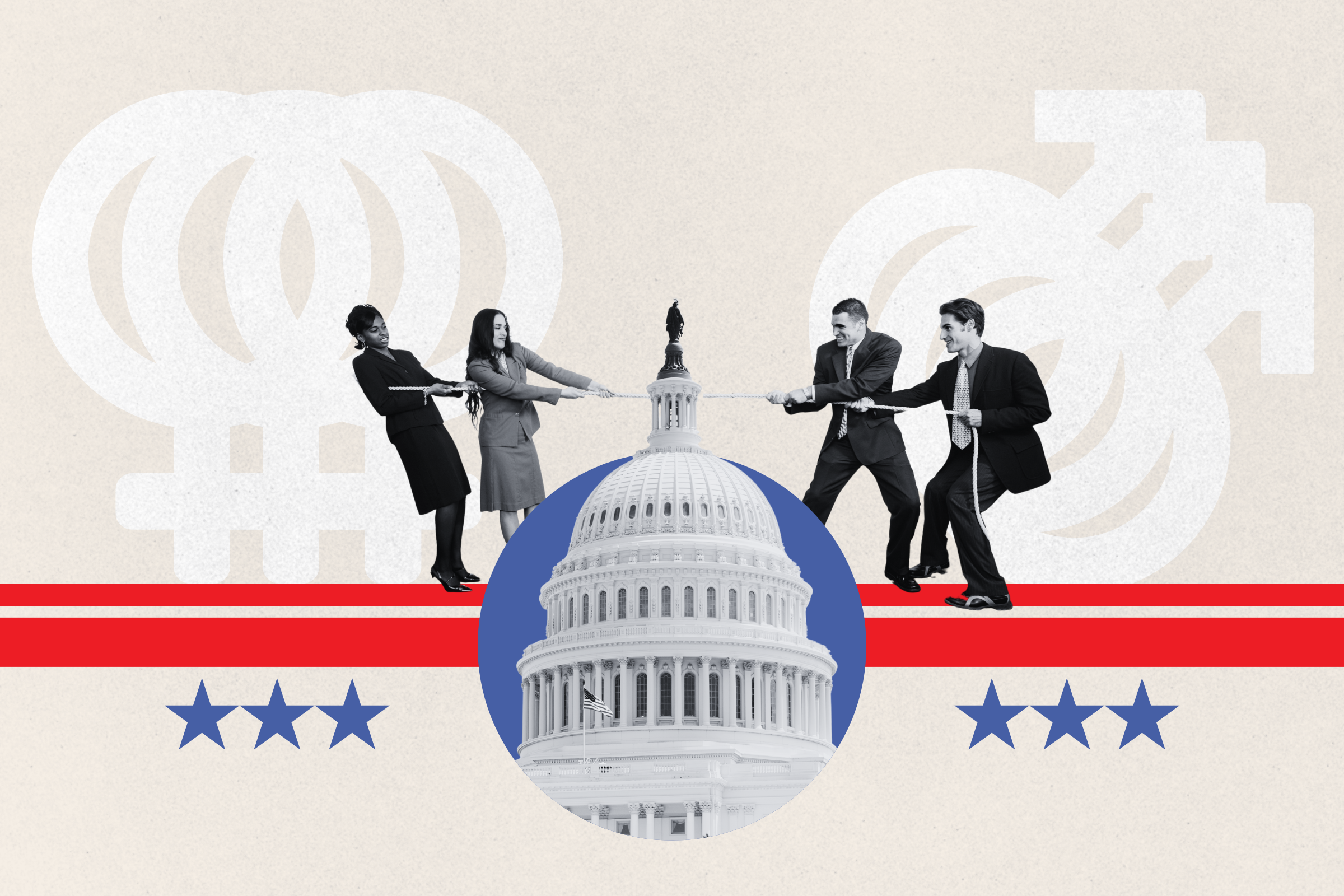BEIJING — A U.S. citizen is among six pro-democracy activists to have arrest warrants issued for them by Hong Kong police for suspected violations under a new national security law, Chinese state media reported late Friday.
Samuel Chu, the managing director of the D.C.-based Hong Kong Democracy Council, an advocacy group, wrote on Twitter that he “woke up to media reports that I am a wanted fugitive.”
He added that he had been an American citizen for 25 years.
“If I am targeted, any American/any citizen of any nation who speaks out for Hong Kong can and will be too. We are all Hong Kongers now,” he wrote.
Chu was among six prominent activists named by Chinese broadcaster CCTV and other state media outlets, to have arrest warrants issued for them under the legislation that came into effect on June 30. The individuals were wanted on suspicion of secession or collusion with foreign forces — crimes that the new security law punishes with up to life in prison.
“These are trumped-up charges,” said activist Nathan Law on his Facebook page, after he got news of his arrest warrant.
Law recently fled to Britain from Hong Kong after the security legislation was enacted by Beijing. He briefly met with Secretary of State Mike Pompeo in London, last month.
“That Hong Kong has no place for even such moderate views like ours underscores the absurdity of Chinese Communist rule,” Law said. Vowing, nonetheless, to continue his “advocacy work overseas” adding that he had already severed communications with his family in Hong Kong for their safety.
Let our news meet your inbox. The news and stories that matters, delivered weekday mornings.
China imposed the contentious security law on its freest city around one month ago, circumventing the local legislature, a move condemned by the U.S. and some Western governments, rights groups and activists in the territory.
Several countries have since suspended their extradition treaties with Hong Kong, including Britain, Australia, and most recently Germany, as a possible safeguard against attempts to use the national security law to round up activists abroad.
Several countries, including the U.K. have offered Hong Kongers an expedited path to full citizenship.
Critics of the security law fear it will crush freedoms in a city that is a global financial hub, while supporters say the legislation is needed to restore stability to the former British colony, after a year of sometimes violent anti-government protests.
Along with Law and Chu, Chinese state media named Wayne Chan Ka-kui, Honcques Laus, Simon Cheng and Ray Wong Toi-yeung as the other four individuals Hong Kong authorities were seeking to arrest.
China’s state-run Global Times newspaper said on Saturday the police notice was the first issued against people who had fled Hong Kong. One commentator told the newspaper that the move sent a clear signal to those who violate the security law that they will be subject to punishment no matter their whereabouts.
News of the warrants came hours after Hong Kong’s Chief Executive Carrie Lam delayed upcoming elections for the city’s Legislative Council by a year, citing concerns over the coronavirus pandemic.
Her announcement came around 24 hours after 12 pro-democracy candidates — including prominent activist Joshua Wong — were blocked from standing in the elections for reasons including opposing the national security law. Wong said the move was a further indication of Beijing’s tightening hold on the city.
In response to Lam’s postponement of the election, Germany became the latest country to suspend its extradition treaty with Hong Kong.
“We have repeatedly made our expectation clear that China lives up to its legal responsibilities under international law,” German Foreign Minister Heiko Maas said on Friday.
Download the NBC News app for breaking news and politics
China’s embassy in Germany hit-back condemning Berlin’s decision, saying it grossly interfered with its internal affairs, according to a statement on its website. China “reserves the right to respond further,” the statement added, without elaborating.
Last month, President Trump signed into law a bipartisan bill that sanctions Chinese officials who undermine the rights to free speech and assembly in Hong Kong. Trump also signed an executive order that ended Hong Kong’s special trade treatment, an escalation in an increasingly hostile relationship between Washington and Beijing.
Eric Baculinao reported from Beijing and Adela Suliman from London.
Reuters contributed to this report.
Eric Baculinao is a producer based in Beijing. A long-term resident of Beijing who is fluent in Chinese, Baculiano scans Chinese news daily for hints of major new policy trends and insights into the workings of China’s secretive Communist Party and government leadership.
